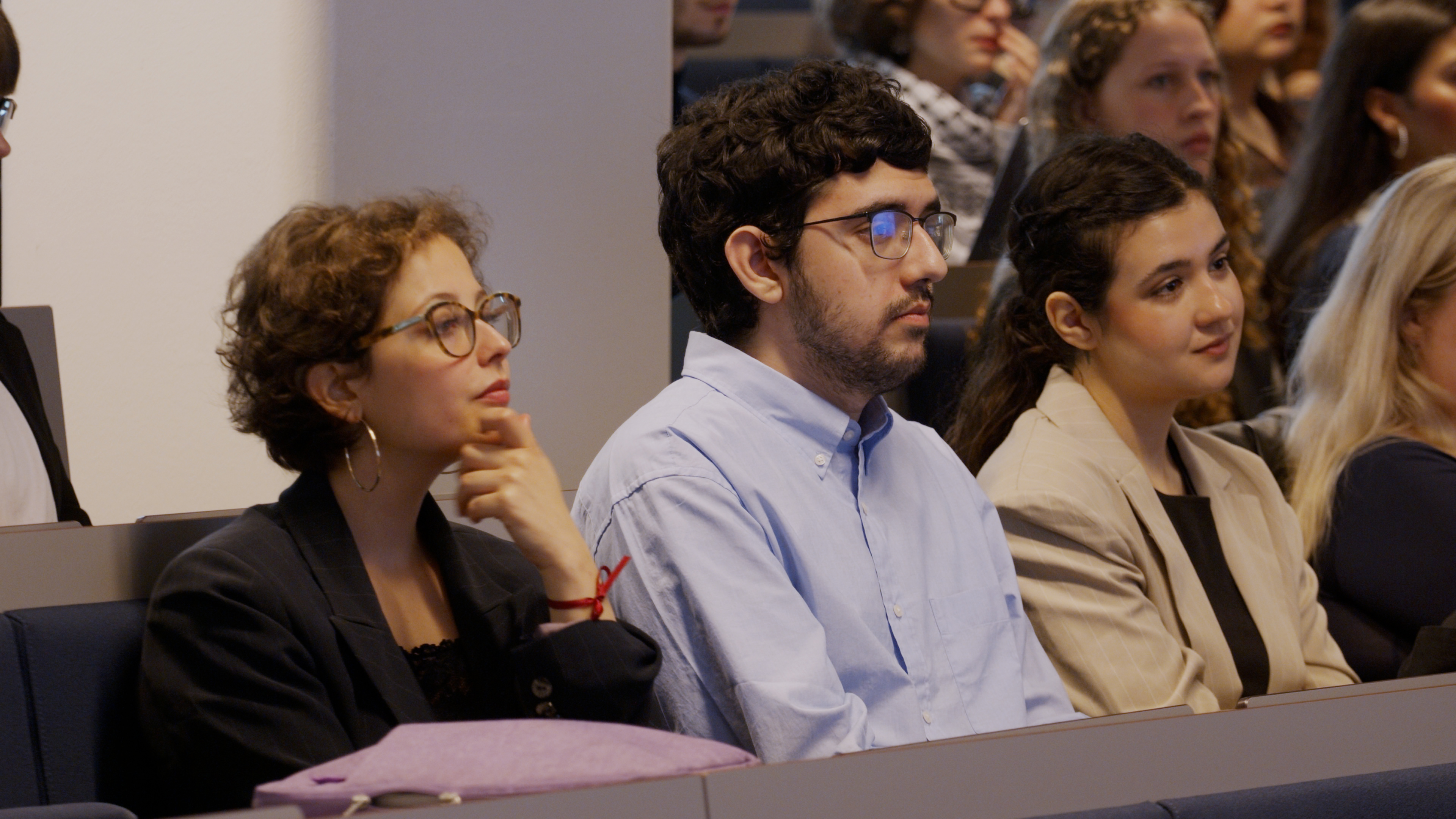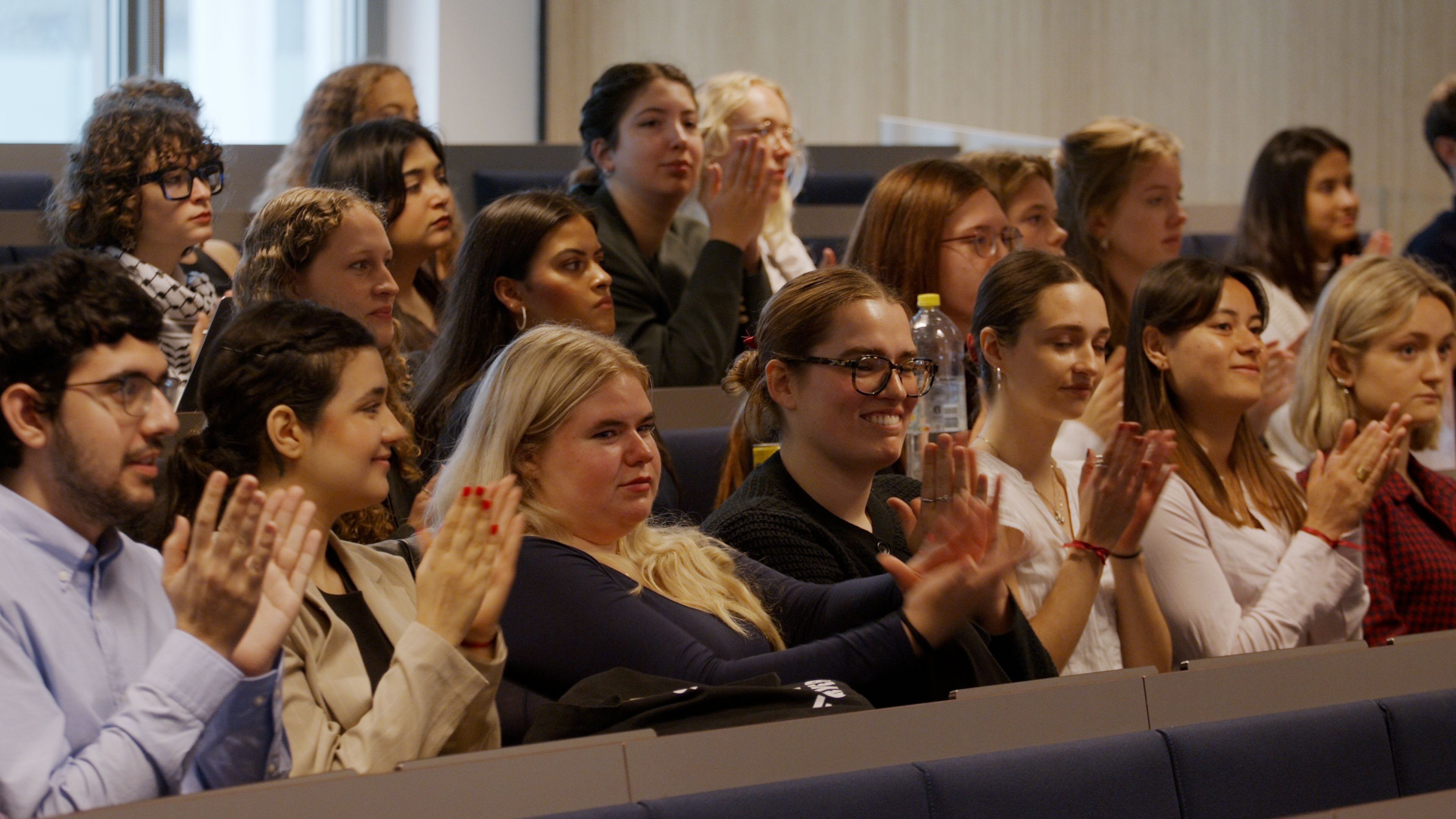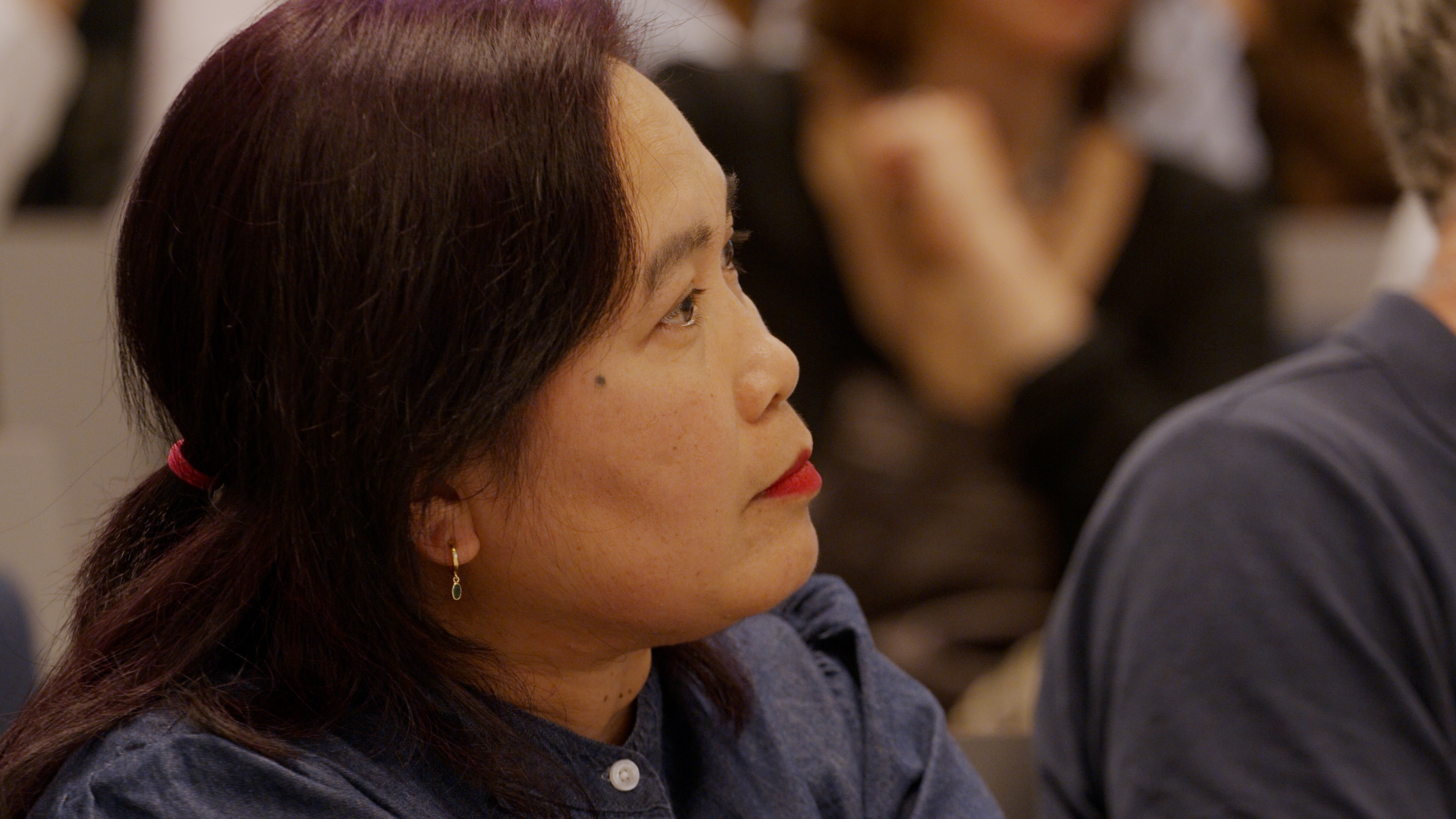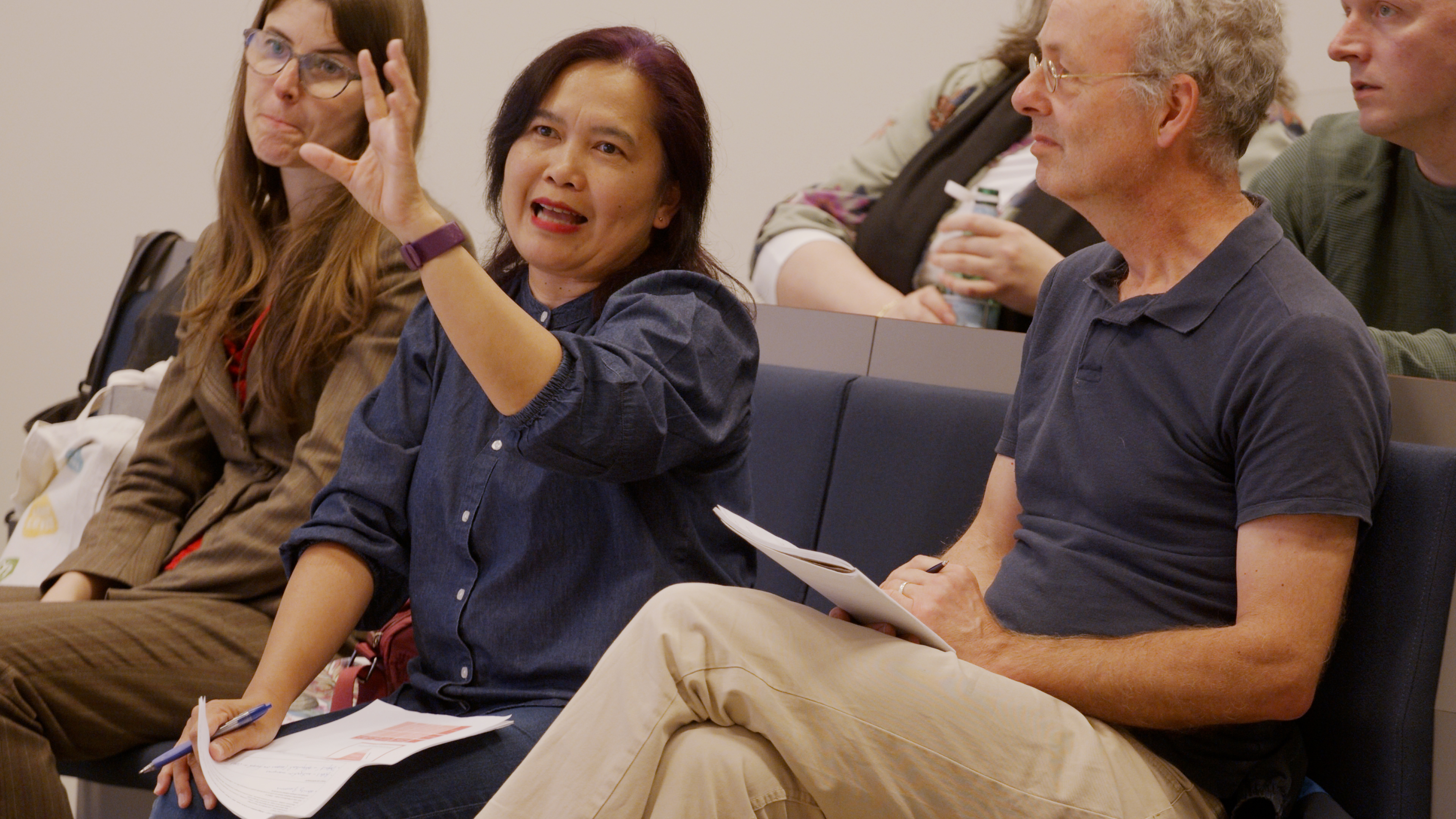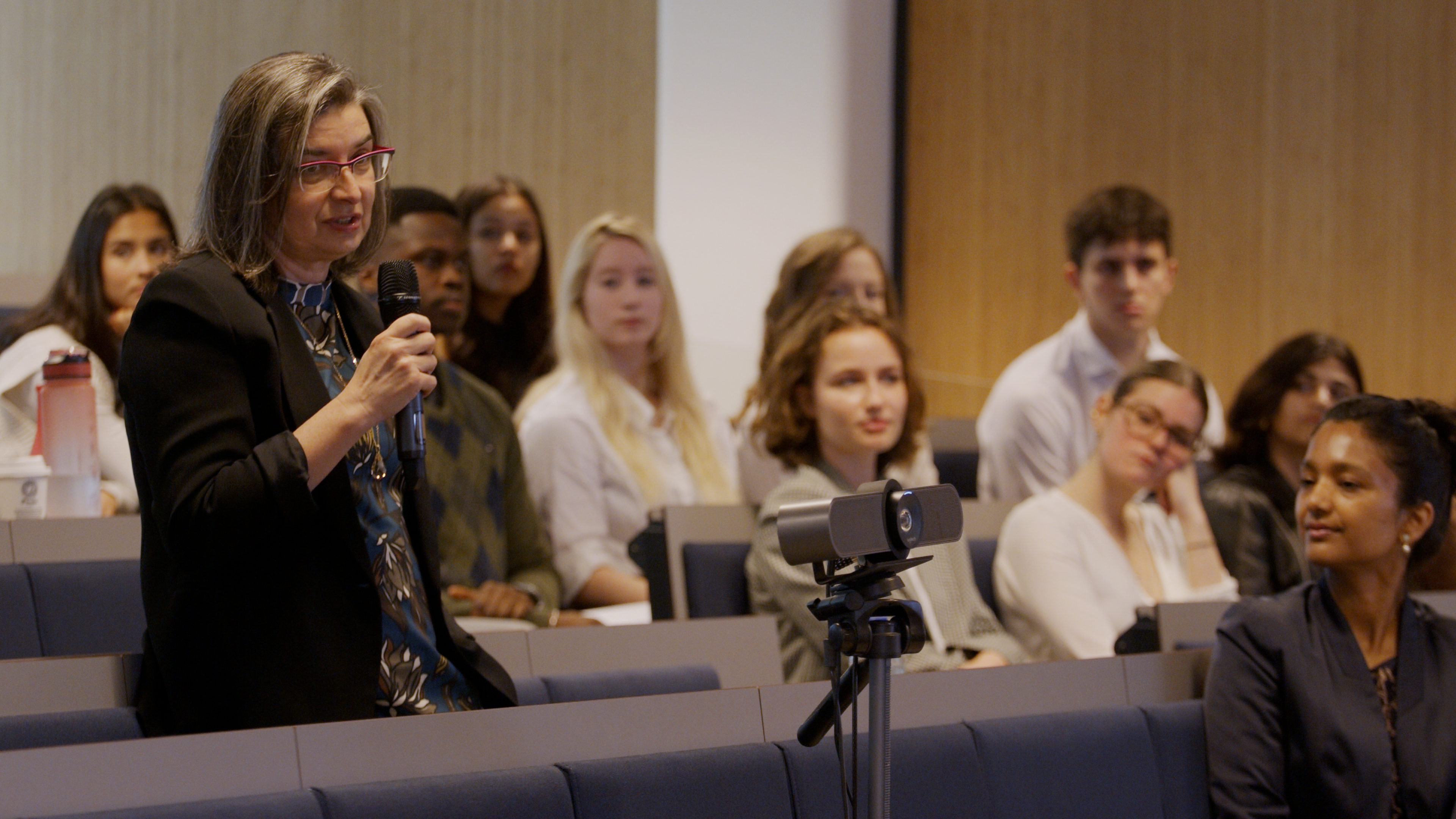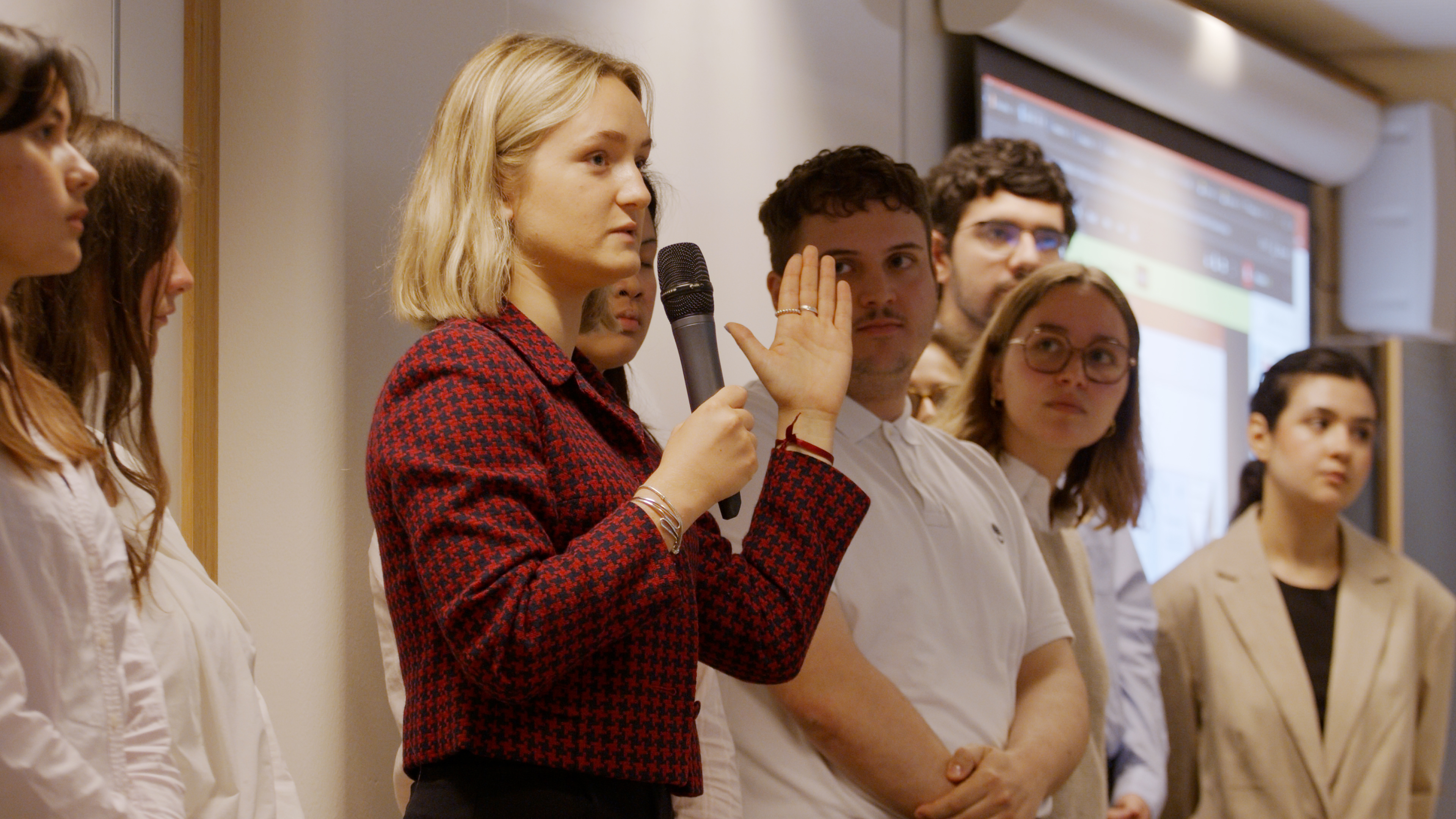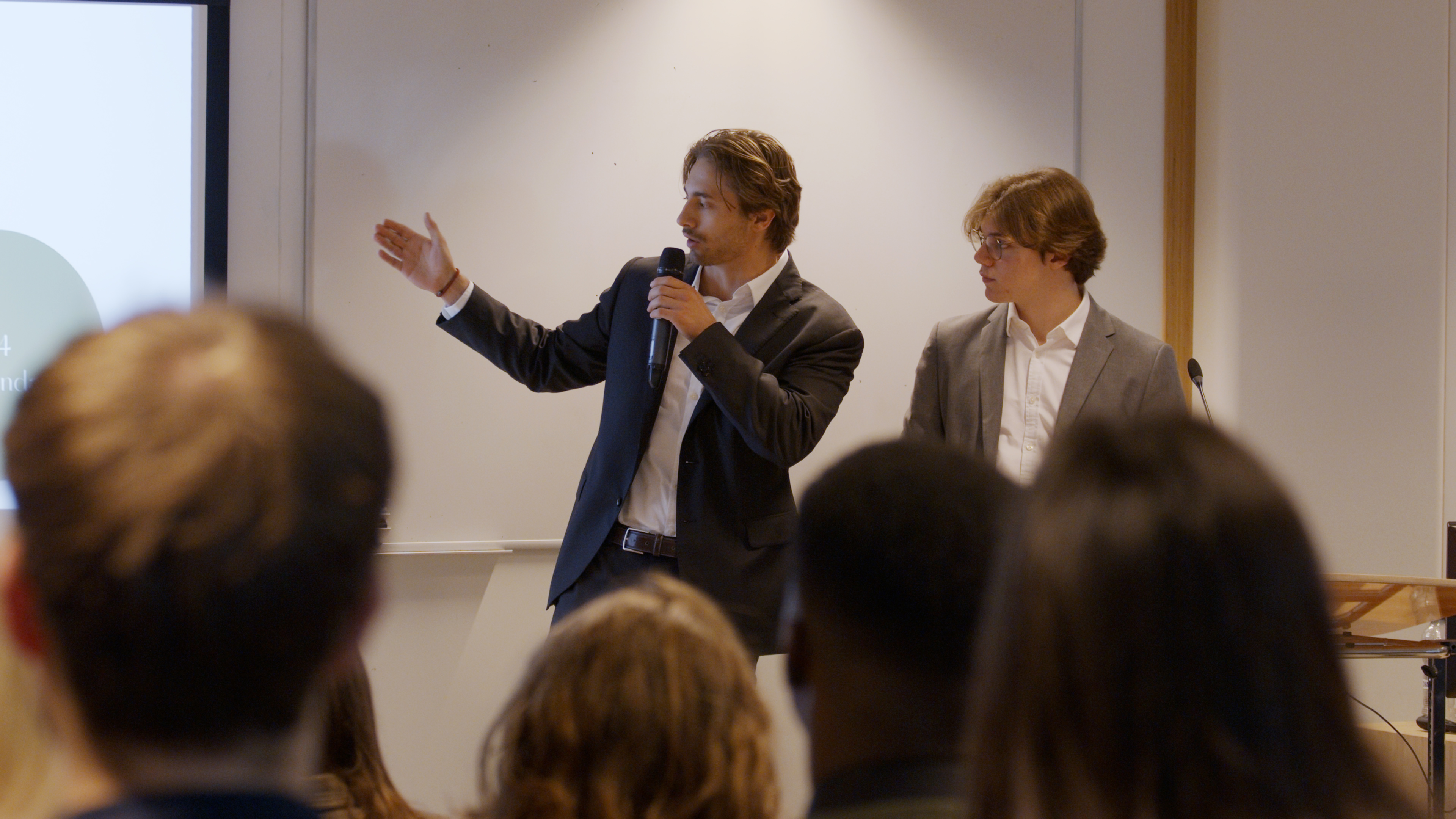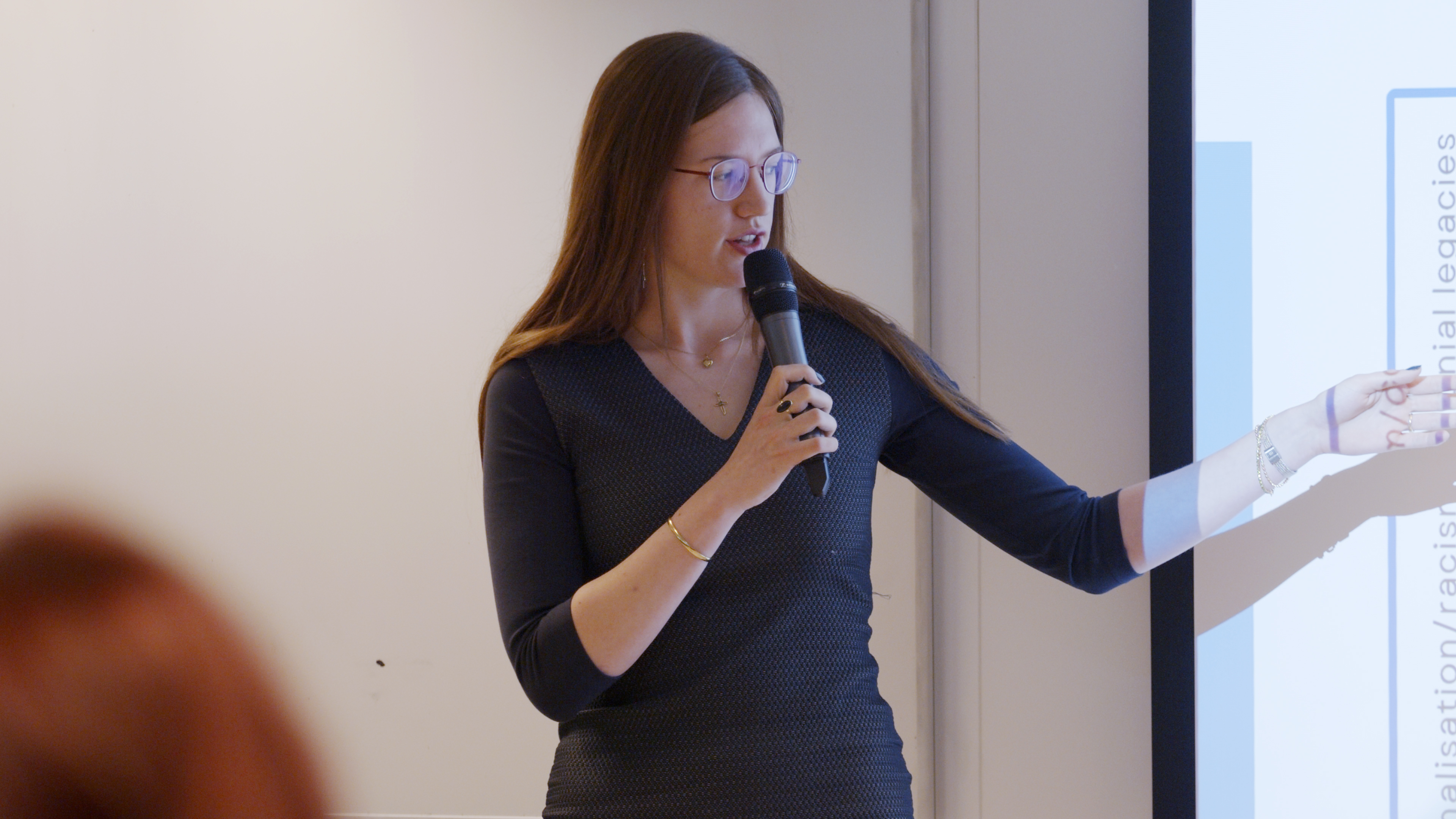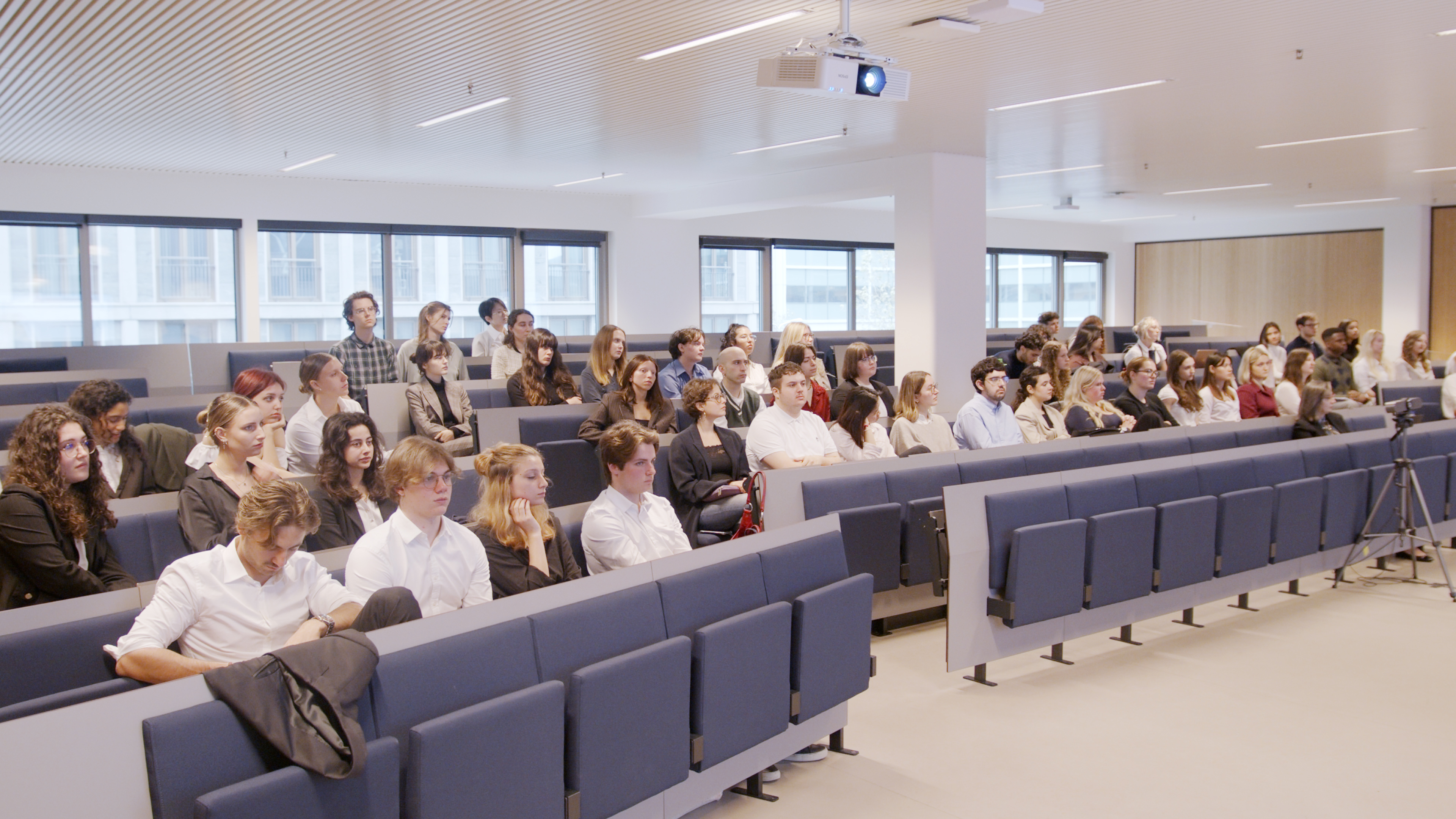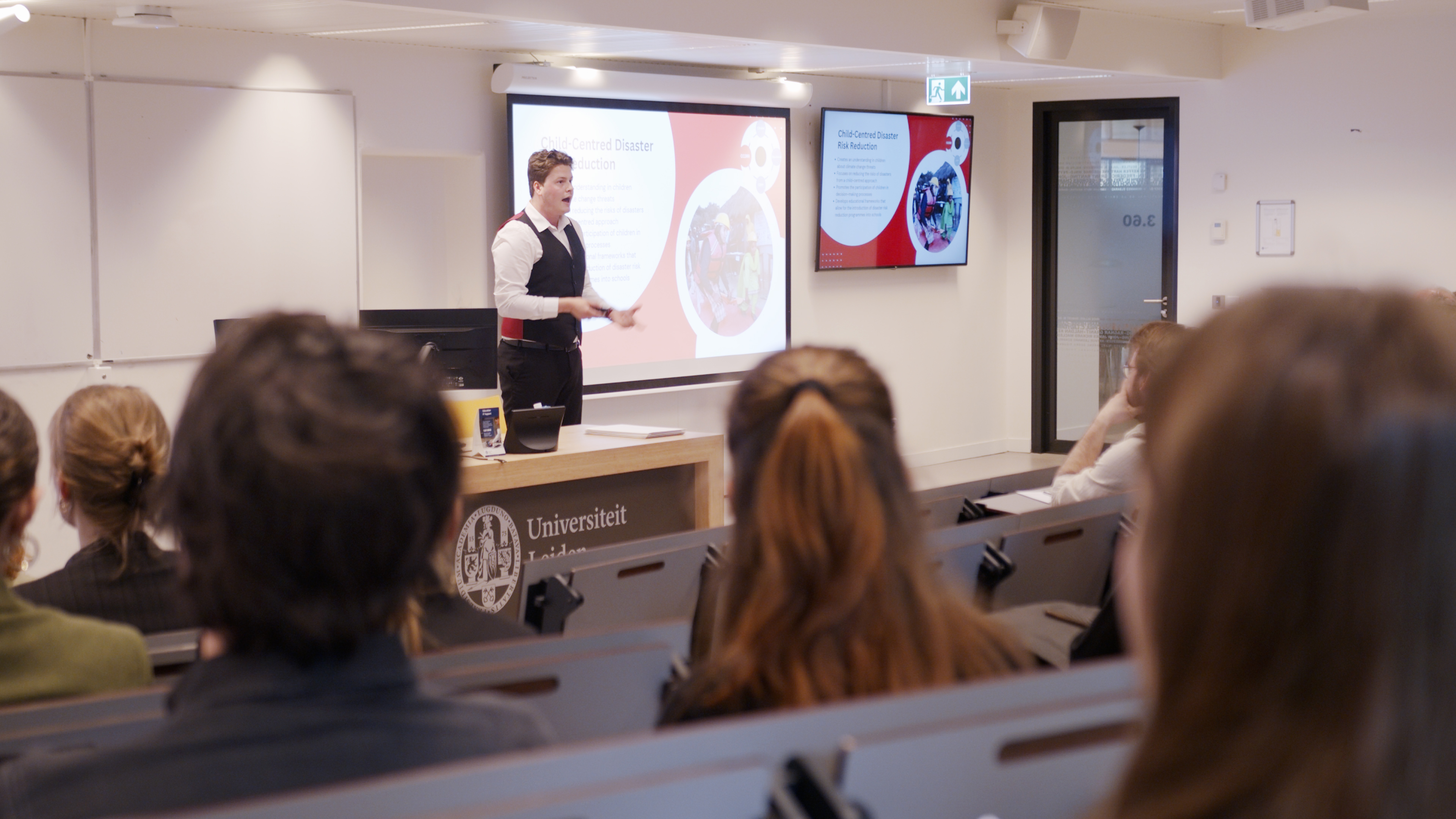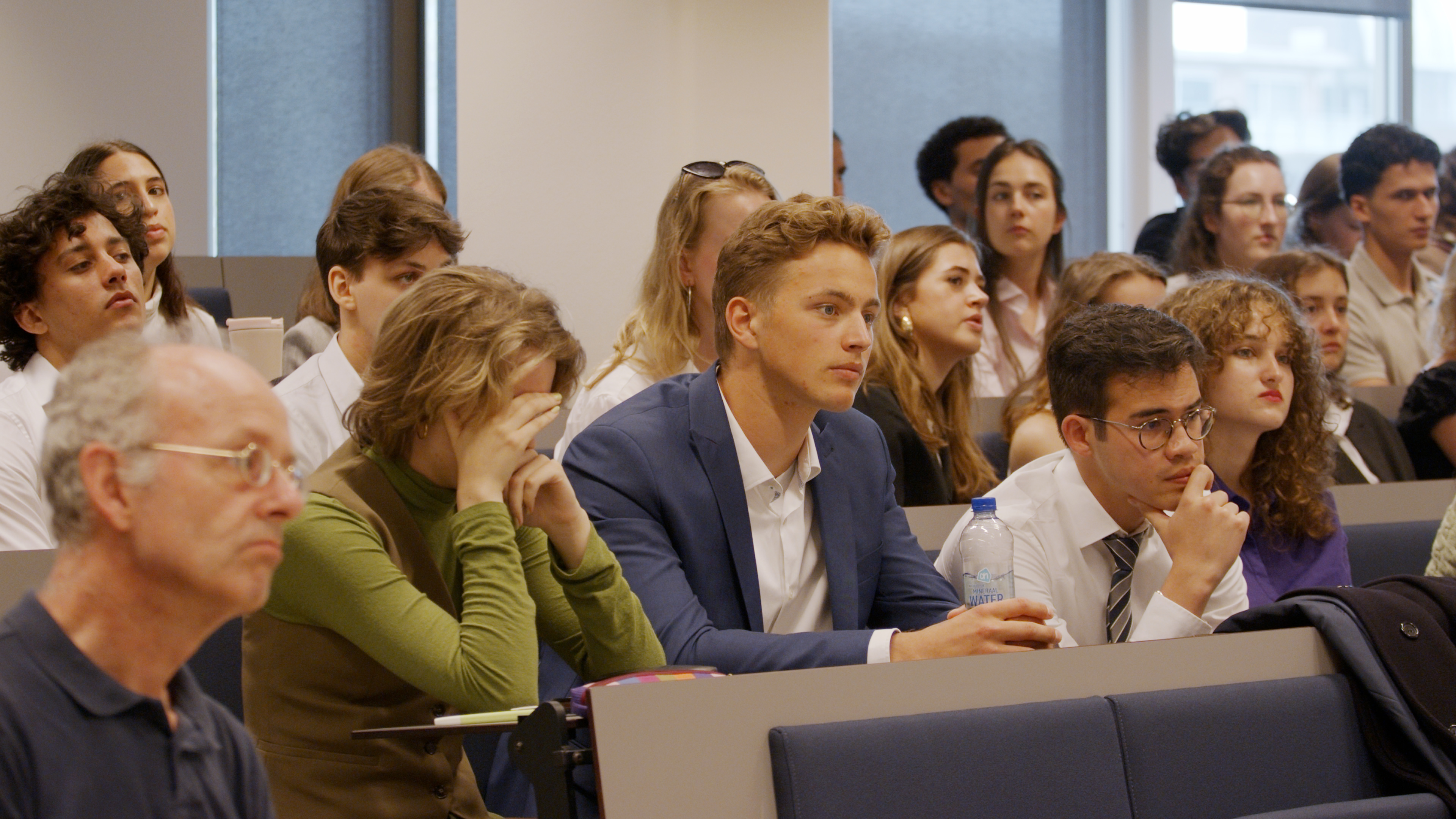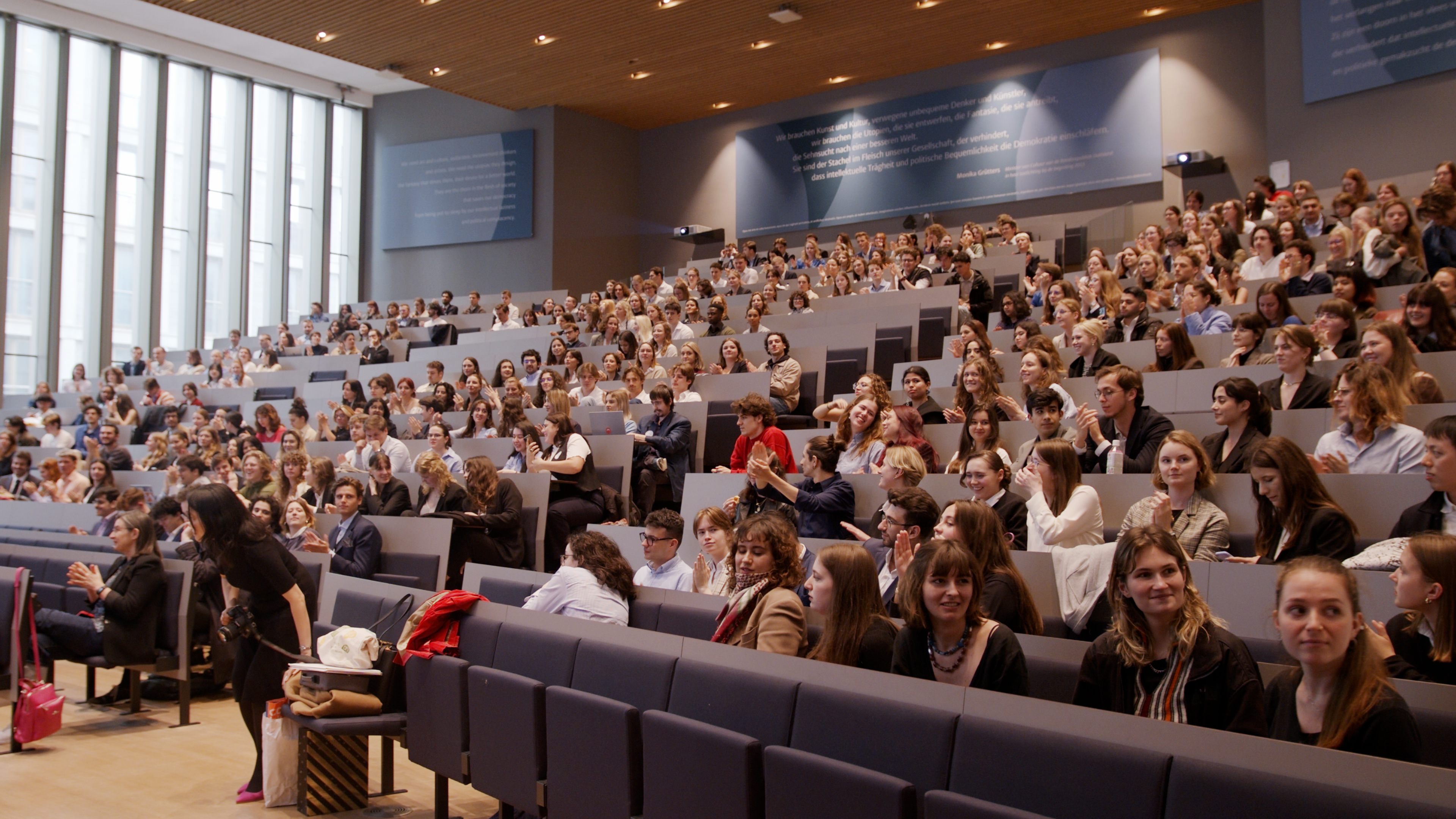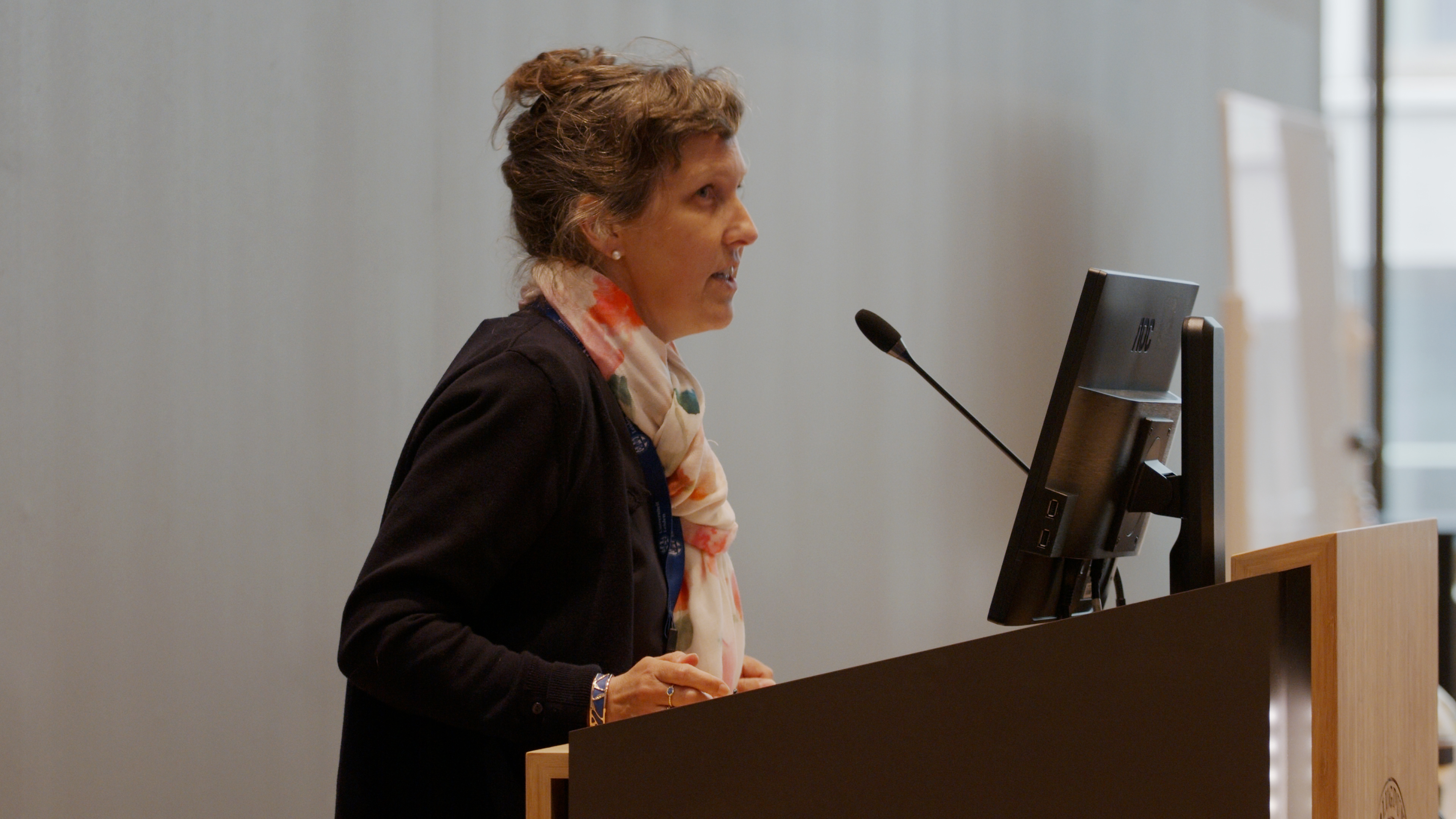
Ten years of PRINS: Students give practical advice to organisations
Students in the third year of the BA International Studies programme follow the Practicing International Studies (PRINS) consultancy course. They conduct a project put forward by real clients and then present them with their research results. PRINS is so successful that it has now been running for 10 years.
PRINS aims to teach students how to put their academic skills into practice. Working in teams, they have the opportunity to engage with a consultancy issue faced by international organisations, ranging from the Ministry of Security & Justice to WarChild and Unesco.
Practical application
Two of the students who participated in this year’s edition are Daan Verkuil and Alice Zanoli, who presented their research to WarChild. ‘They gave us the task of analysing the impact that climate change can have on conflict areas,’ explains Alice. ‘We were asked to present solutions addressing the potential problems it could cause. International Studies is very much focused on theory, and the PRINS programme helps us to apply the knowledge we gain there in the real world. For many people, this is their first experience of doing fieldwork.’
Daan agrees. ‘Our studies mostly involve writing individual papers, and this course teaches you to work with people you might not know. It sounds very pragmatic, but this is something that will definitely help me in my future career. We really learned how to work together in harmony.’ The PRINS programme also gave Daan a new perspective. ‘We approached the case from quite an idealistic angle and were thinking completely in terms of possibilities. During the presentations, it became clear to me that we also need to take account of the limits we might encounter, and how to deal with them.’
Overlap of disciplines
WarChild itself was also present at the PRINS final presentations. Weng Ladaga, the organisation’s strategic coordinator, provided the students with feedback. When asked why WarChild decided to participate in PRINS, she gives a clear answer: ‘It’s the intersectionality of the programme that attracted us most and seemed to offer the best opportunities, not only for the students but also for WarChild. Over the past decade, we realise our work with children is increasingly affected by the climate crisis –which could sometimes be the driver of conflicts and war. So, integrating climate change in our child rights programming became more urgent. However, there is an apparent gap in both academic research and in practice, how this is actually being done. That’s why we asked the PRINS students to look at possible ways to address the nexus of climate and conflict affecting children.
It is this overlap of disciplines and specialisations that makes PRINS so valuable, Ladaga believes: ‘The students look at the problems in a different way than the people who’ve been working in the area for some time. They bring a new perspective and often manage to think outside the box to recommend solutions that we wouldn't immediately think of ourselves.’

